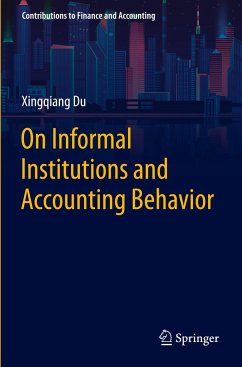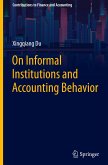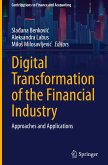This book focuses on the Chinese context to investigate how informal institutions (Confucian culture and its dimensions, religion, political connections) in China affect accounting behaviors. This book tries to show that cultural influence and religious impacts in China are not trivial and increasingly important, and specifically, informal institutions have its bright and dark sides with regard to its effects on accounting behaviors. This book aims to investigate whether and how informal institutions (Confucian culture and its dimensions, religion, political connections) affect micro-level accounting behaviors, including but not limited to audit quality, financial misstatement, R&D, corporate misconducts, corporate philanthropy and corporate environmental responsibility.
This book provides graduate students, scholars and practitioners in the fields of accounting, business administration and religion with an in-depth understanding about how informal institutions as a set of social norms affect micro-level accounting behaviors.
First, this book is the first to focus on the Chinese context and investigate the effects of informal institutions on accounting behavior.
Second, this book documents systematic evidence to show the bright and dark sides with regard to the relation between informal institutions and accounting behavior in China.
Lastly, this book reveals informal institutions can serve as an important mechanism to affect accounting behaviors.
This book provides graduate students, scholars and practitioners in the fields of accounting, business administration and religion with an in-depth understanding about how informal institutions as a set of social norms affect micro-level accounting behaviors.
First, this book is the first to focus on the Chinese context and investigate the effects of informal institutions on accounting behavior.
Second, this book documents systematic evidence to show the bright and dark sides with regard to the relation between informal institutions and accounting behavior in China.
Lastly, this book reveals informal institutions can serve as an important mechanism to affect accounting behaviors.








